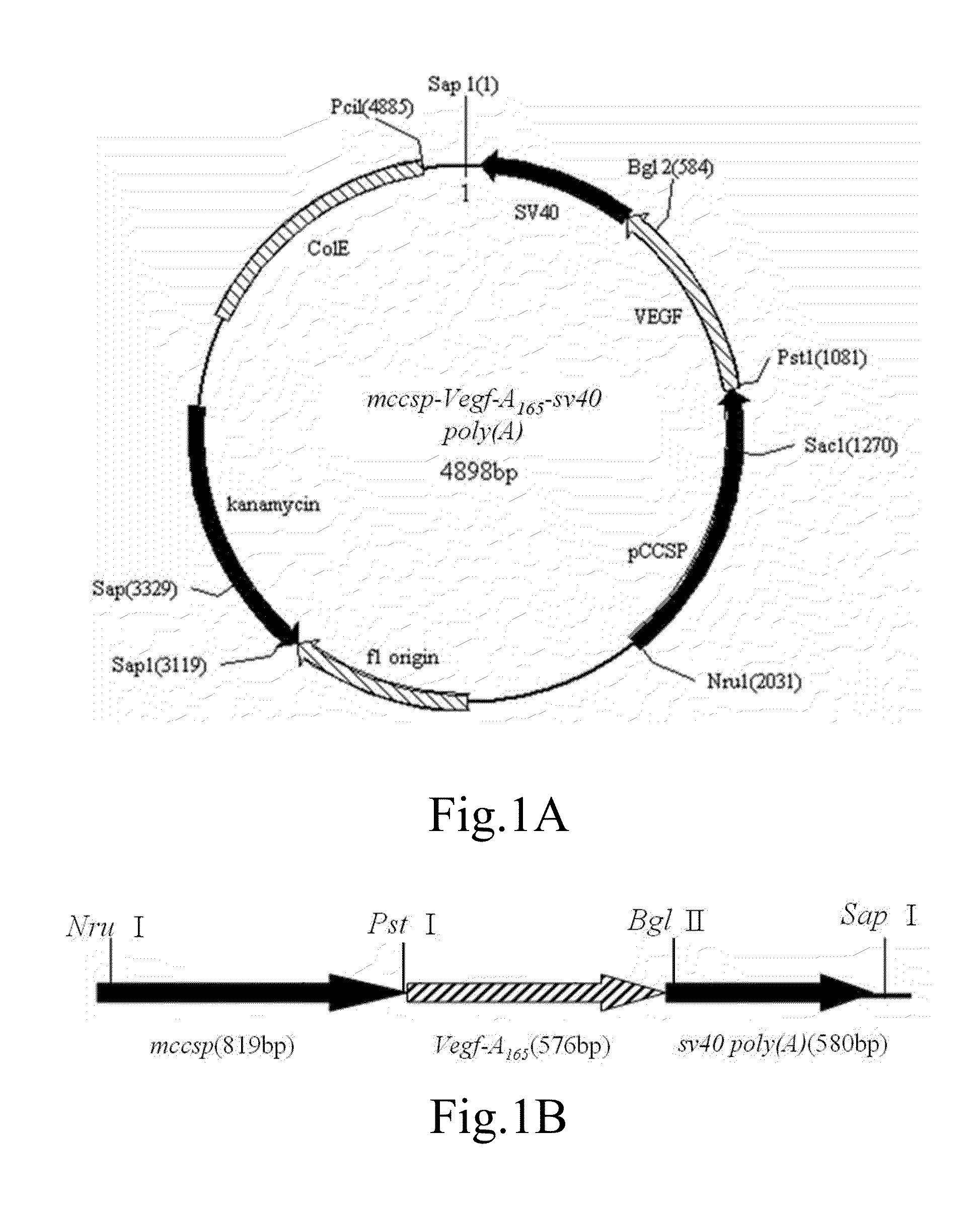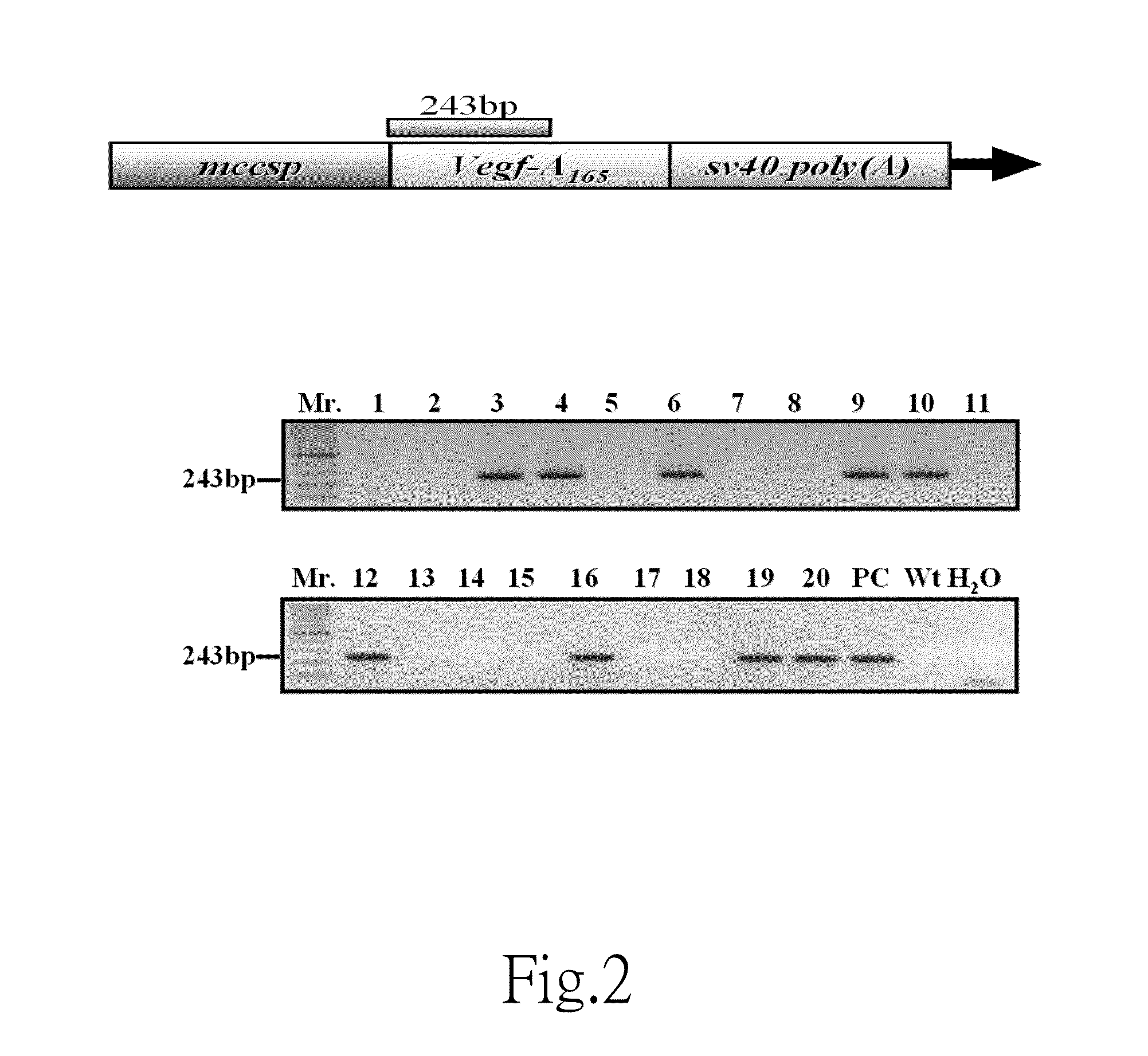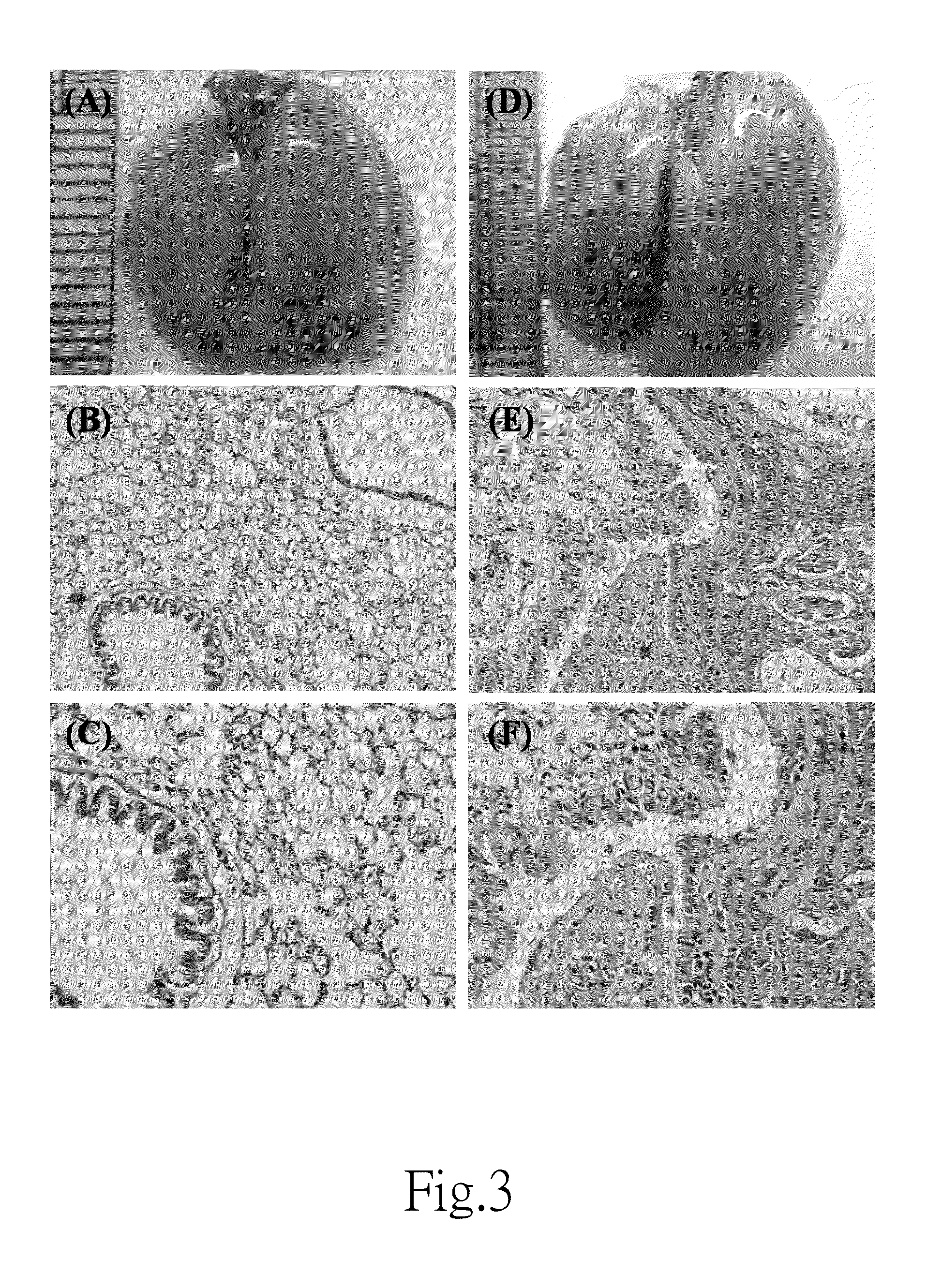Method for Manufacturing Animal Model for Researching Pulmonary Tumor and Use Thereof
- Summary
- Abstract
- Description
- Claims
- Application Information
AI Technical Summary
Problems solved by technology
Method used
Image
Examples
example 1
Preparation of a Transgenic Mouse has a DNA Sequence of Transgene Encoding VEGF-A165
[0048]The DNA sequence of transgene encoding VEGF-A165 was constructed onto a site subsequent to a clara cell secretory protein (CCSP) promoter and then poly (A) sequence was subsequently connected to the VEGF-A165 so as to form a lung-specific expression vector (CCSP-VEGF-A165-sv40poly(A)) as shown in FIG. 1.
[0049]The lung-specific expression vector (2.0 kb) was purified and then the purified vector was introducing into an embryo of a mouse by a microinjection process. The embryo then was transplanted into a female mouse as a surrogate mother. Within 3 weeks after the embryo transfer, the transgenic mouse was born.
example 2
Selection of the Transgenic Mice
[0050]The transgenic mice produced in Example 1 were fed under a temperature-stable environment (25° C.). After they grew to the age about 1 month, a tail tissue of 1-2 cm was cut off per mouse to extract the DNA thereof. A polymerase chain reaction (PCR) was conducted to check whether or not each of the mice contains the transgene. The polymerase chain reaction used herein contains a primer as follows:
VEGF 94:5′-AAGGAGGAGGGCAGAATCATC-3′VEGF 315:5′-GAGGTTTGATCCGCATAATCTG-3′
[0051]The products were taken into 1.5% agarose gel electrophoresis analysis and the so-acquired results indicated that the PCR product was 243 base pairs. These results were shown in FIG. 2 and indicated that 9 mice of them (No. 3, 4, 6, 9, 10, 12, 16, 19, and 20) were truly the transgenic mice whose genomes respectively include the DNA sequence of transgene encoding VEGF-A165.
example 3
Confirming that the Transcript Gene is Capable of Passing on to an Offspring by Sexual Reproduction
[0052]Each of three transgenic mice (respectively named as VEGF165-Tg-No. 1, VEGF165-Tg-No. 2 and VEGF165-Tg-No. 3) firstly produced was respectively matched to a wild type (Wt) mouse to produce its own offspring (F1, F2 and F3). The procedures described in Example 2 were repeated to sampling the tail tissues each of the offspring for conducting a PCR so as to select the mice having VEGF-A165.
[0053]The results were shown in Table I wherein the denominator represented the total quantity of the mice in each generation and meant that it is the mice quantity conducted in the PCR analysis while the numerator represented the quantity of transgenic mice confirmed by PCR analysis.
TABLE IGeneration No.VEGF165-Tg-No.1VEGF165-Tg-No.2VEGF165-Tg-No.3F15 / 167 / 2516 / 52F219 / 3613 / 2125 / 52F3——31 / 42
[0054]From Table I, it is learned that the transgene is capable of stably passing on to its offspring by sexua...
PUM
 Login to View More
Login to View More Abstract
Description
Claims
Application Information
 Login to View More
Login to View More - R&D
- Intellectual Property
- Life Sciences
- Materials
- Tech Scout
- Unparalleled Data Quality
- Higher Quality Content
- 60% Fewer Hallucinations
Browse by: Latest US Patents, China's latest patents, Technical Efficacy Thesaurus, Application Domain, Technology Topic, Popular Technical Reports.
© 2025 PatSnap. All rights reserved.Legal|Privacy policy|Modern Slavery Act Transparency Statement|Sitemap|About US| Contact US: help@patsnap.com



